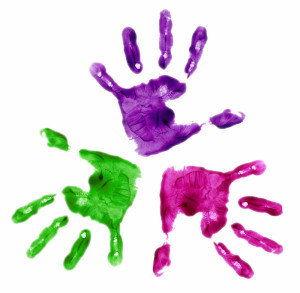Cultivating Empathy
As we celebrate Martin Luther King, Jr. Day today, there is much emphasis on civil rights and social justice. But how can we teach these concepts to young children?
Little ones may not understand civil rights, but they can relate to feelings. They understand what it’s like to feel happy or sad. Angry or fearful. Surprised or bored.
So while young children may not be ready to discuss civil rights, they are ready for you to help them cultivate empathy – what we often refer to as walking in someone else’s shoes. For example:
- When your son shares a toy, you can point out the happy reaction of the other child
- When your daughter pushes another child, help her to see how sad she would feel if someone pushed her
- When your son refuses to play with a classmate because of their skin color, ask him how he would feel if someone refused to play with him because of the color of his skin
- When your daughter makes fun of a playmate because she dresses “funny,” help your daughter explore how she would feel if someone made fun of her clothes
- When your son ignores the new kid at school, ask him how he would feel if he had to move away from his home and friends to start over in a new neighborhood and a new school
These may seem like simplistic examples, but in each situation, the goal is to help children move beyond their own feelings to identify with the feelings of others. As your children grow, you can build on these age-appropriate illustrations to explore more complicated circumstances.
When children le arn to “walk in the shoes” of others, they will cultivate empathy…an ability that will help them in their relationships across social, economic, and racial differences for the rest of their lives.
arn to “walk in the shoes” of others, they will cultivate empathy…an ability that will help them in their relationships across social, economic, and racial differences for the rest of their lives.
Even more important, they will come to understand the heart of God, who “made from one man every nation of mankind to live on all the face of the earth” (Acts 17:26 ESV).
Ava Pennington
www.AvaWrites.com

Comments
Cultivating Empathy — No Comments
HTML tags allowed in your comment: <a href="" title=""> <abbr title=""> <acronym title=""> <b> <blockquote cite=""> <cite> <code> <del datetime=""> <em> <i> <q cite=""> <s> <strike> <strong>